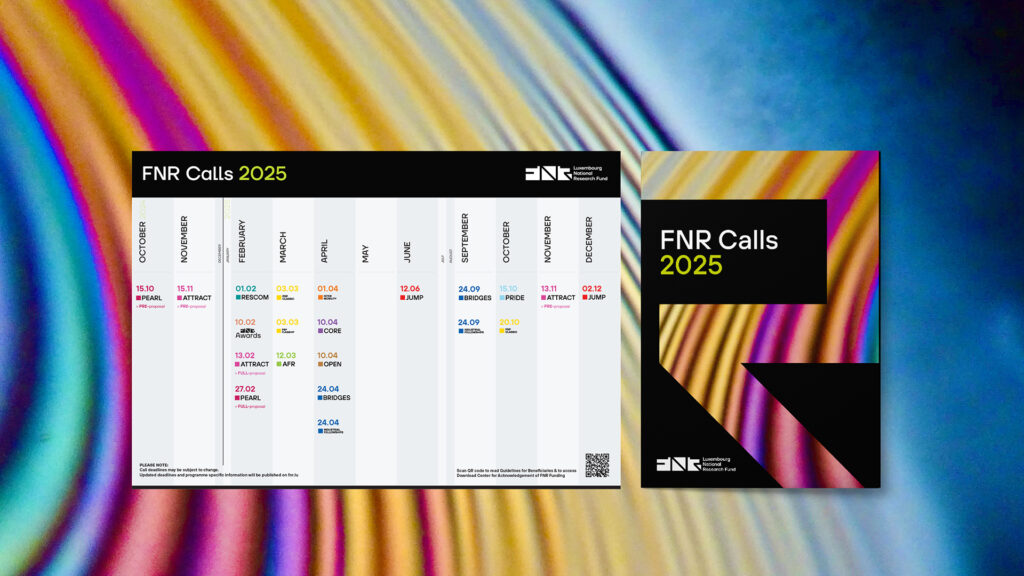PROGRAMME SUMMARY
PRIDE is the FNR’s main programme for funding doctoral research in Luxembourg. It aims to support the development of critical mass in key research areas, by attracting excellent PhD candidates to Luxembourg and offering them high quality research training. Under this programme, a block of PhD grants is awarded to a consortium of excellent researchers united around a coherent research and training programme.
Changes to 2025 Call
Among the main changes from previous PRIDE calls, a cap is introduced on the number of PhD positions that can be awarded to a single PRIDE project. Each project may now receive up to 10 FNR-funded PhD positions. The requirement for co-funding remains unchanged.
Additionally, each Principal Investigator (PI) may participate as a supervisor in only one PRIDE application within this call.
DURATION & FUNDING SPECIFICS
The duration of a PRIDE project is up to 6.5 years.
The funding offered through PRIDE comprises:
- A specified number of PhD grants (each grant comprising the equivalent of a 4-year PhD employment contract + a training & mobility allowance of 6.500 EUR).
- A lump sum of 10.000 EUR per PhD grant paid to the DTU in order to pay for training and other DTU direct costs.
- The FNR requires co-funding for each DTU funded under PRIDE
APPLICATION INFORMATION
- The Doctoral Training Unit (DTU), under the lead of the DTU coordinator, is the applying entity
- Prospective PhD candidates apply directly to the successful DTUs for a PhD position.
- The “PRIDE Full proposal” must be submitted by the DTU coordinator through the FNR Online Grant Management System.
